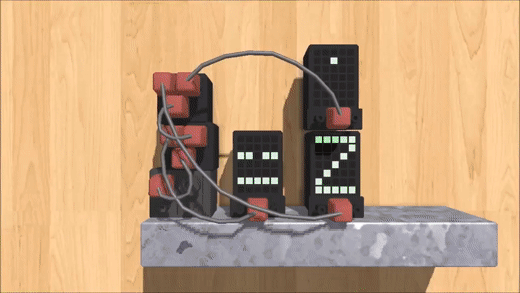Principia is a sandbox physics game originally released in November 2013. It is the successor to the Android hit game "Apparatus".
Principia can be built on Windows, Linux, Android or iOS. The iOS version lags behind and lacks a lot of UI.
Compilation on Windows and Linux should be easy, see further below.
NOTE! More documentation and resources will come in short!
Feel free to fork this project and send in your pull requests. This is a community project and the community decides how the project evolves. If you are serious about joining and taking a bigger role, please fill in this form:
https://forms.gle/Pu7Lw5Vjc6yD4jwVA
Please join the Official Unofficial Discord here:
Follow Bithack on Twitter:
https://www.twitter.com/Bithack
The game engine behind Principia (TMS) is written in the C99 standard of C. Unfortunately, the Visual Studio C compiler does not support the C99 standard. Principia must therefore be compiled using the MSYS2 MINGW64 toolchain, as described below.
Please find the latest version of the 64-bit MSYS2 here: https://www.msys2.org/
After installation, a terminal opens. Run the following command to update the environment:
$ pacman -Syu
The terminal will then ask you to close it when done. Proceed with doign so, and then go to the start menu and run MSYS Mingw32 64-bit. It is important that you run the "MINGW64 64-Bit" version and not the "MSYS2 MSYS" or "MINGW64 32-Bit". Run the commands below to install the necessary dependencies.
$ pacman -S --needed base-devel mingw-w64-x86_64-toolchain autotools
$ pacman -S mingw-w64-x86_64-gtk2
$ pacman -S mingw-w64-x86_64-curl
Then navigate to the 'build-windows' folder inside of where you cloned Principia, for example:
$ cd /c/Users//Principia/build-windows
And start the building process:
$ ./autogen.sh
$ ./configure
$ ./go
Principia will launch if everything was successful. Note that the compilation might take up to 10 minutes depending on your system.
Debian: $ sudo apt-get install automake libgtk2.0-dev libgl-dev libxss-dev libxxf86vm-dev libasound2-dev libudev-dev valgrind
Fedora: $ sudo dnf groupinstall "Development Tools" "Development Libraries" $ sudo dnf install gcc-c++ gtk2-devel mesa-libGL-devel libXScrnSaver-devel libXxf86vm-devel alsa-lib-devel systemd-devel
Navigate to the build-linux directory and start the building process:
$ cd build-linux;
$ ./autogen.sh
$ ./configure
$ ./go
If everything goes well, Principia will start but then freeze at the loading screen due some uninitialize directories. Terminate Principia by replying 'y' in the gdb prompt in the terminal, then in the same terminal, go up a directory and launch it from the parent directory instead:
$ cd ..
$ build-linux/apparatus2
(this bug will be fixed in short)
These instructions can likely be easily adapted to build on any platform for Android.
Download Android Studio from: https://developer.android.com/studio
Untar the archive (your version number might differ from the example below) and run studio.sh:
$ tar xzf android-studio-2021.2.1.16-linux.tar.gz
$ cd bin; ./studio.sh
Choose Custom in the Installer, click Next a bunch of times. Android Studio will download components for a while. Once finished, in the "Welcome to Android Studio" dialog, choose "Customize" in the left menu and then click "All Settings..." at the bottom center. Open Appearance -> System Settings -> Android SDK. Click the SDK Tools tab and check the following items:
- NDK (Side by side)
- Android SDK Command-line tools
Click Apply and wait for the components to download. Close Android Studio forever.
Open a terminal and run the build scripts:
$ cd build-android;
$ export ANDROID_HOME=/home/EXAMPLE/Android/Sdk
$ ./gradlew build
ANDROID_HOME should be set to the location where Android Studio installed the SDK (which you chose during setup). You might want to put that export line in your .bashrc file.
Finally, to install the game on your device:
$ ./gradew install
See LICENSE.md
